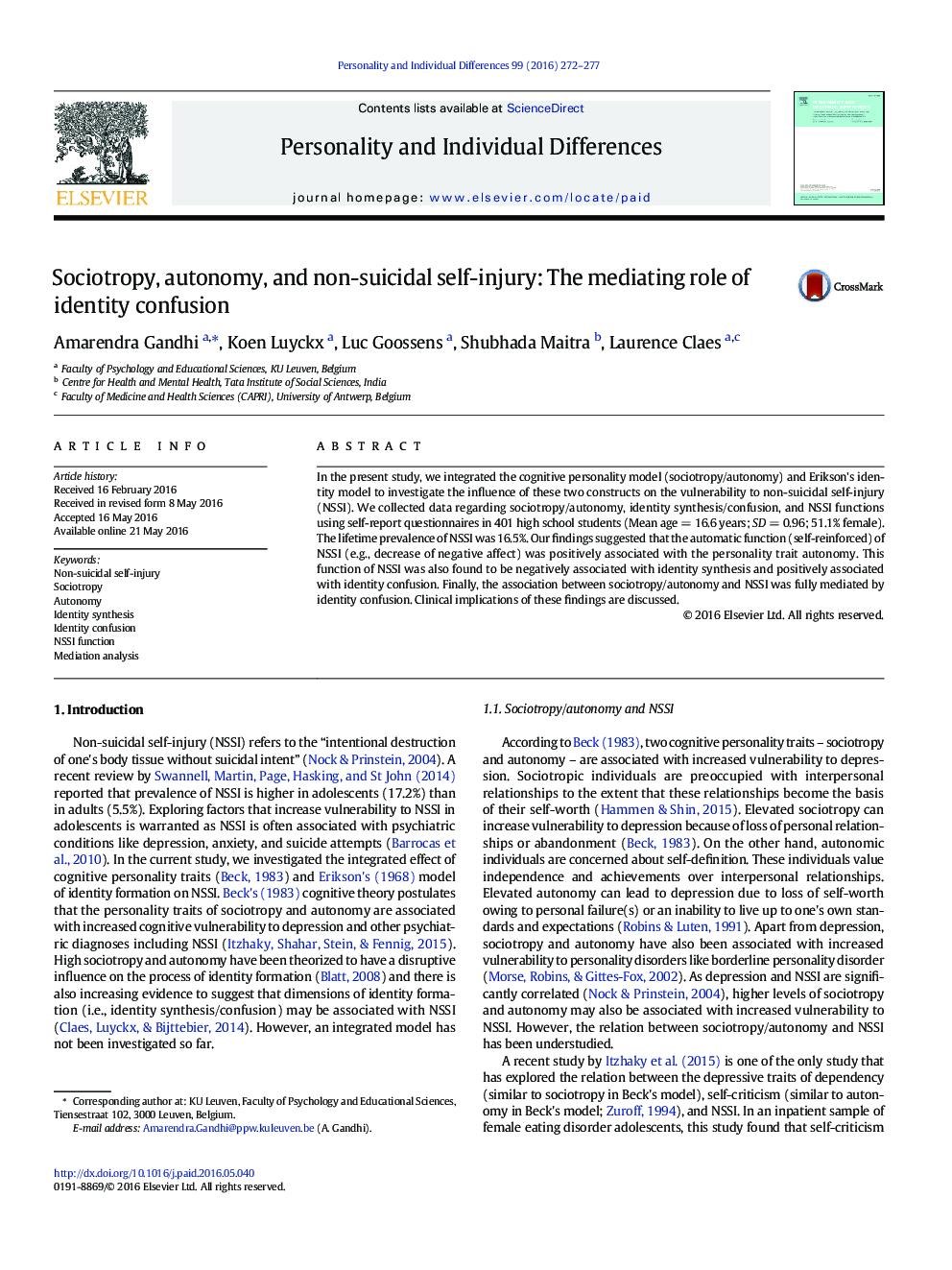| Article ID | Journal | Published Year | Pages | File Type |
|---|---|---|---|---|
| 889731 | Personality and Individual Differences | 2016 | 6 Pages |
•We investigated the combined effect of cognitive traits and identity variables on NSSI.•Data were collected from three high schools in the Flemish-speaking part of Belgium.•16.8% of the 401 high school students reported engaging in NSSI.•Identity confusion mediated the pathway between NSSI and sociotropy/autonomy.
In the present study, we integrated the cognitive personality model (sociotropy/autonomy) and Erikson's identity model to investigate the influence of these two constructs on the vulnerability to non-suicidal self-injury (NSSI). We collected data regarding sociotropy/autonomy, identity synthesis/confusion, and NSSI functions using self-report questionnaires in 401 high school students (Mean age = 16.6 years; SD = 0.96; 51.1% female). The lifetime prevalence of NSSI was 16.5%. Our findings suggested that the automatic function (self-reinforced) of NSSI (e.g., decrease of negative affect) was positively associated with the personality trait autonomy. This function of NSSI was also found to be negatively associated with identity synthesis and positively associated with identity confusion. Finally, the association between sociotropy/autonomy and NSSI was fully mediated by identity confusion. Clinical implications of these findings are discussed.
